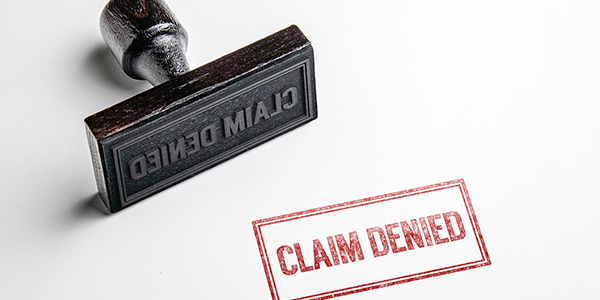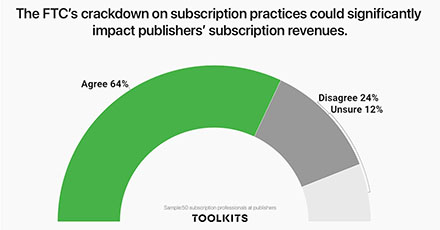 |
||||||||||||
|
||||||||||||
| Meta Eyes Social Crown With Branded Content Tools Coming to Twitter Rival, Threads |
 |
| From day one as owner and CEO of Twitter, Elon Musk has made a string of business blunders, turning major brands and publishers away from the social media network. Competitors smelled the blood in the water and circled the platform like a shiver of ravenous sharks. Upon its debut, Meta's Threads became one of the many platforms designed to take over Twitter's spot in the Mt. Rushmore of social media platforms. Since it is tied directly to millions of users' Instagram accounts, it rapidly hit 100 million users in a record five days, making it a viable competitor. Analysts are seeing a dropoff in user engagement since the app's initial launch, but it still manages to steal some of Twitter's shine. Some advertisers are already experimenting with the platform's capabilities for consumer awareness and engagement, and they welcome Meta's plans to bring Instagram's branded content tools to Threads. This strategic move will bring tools to marketers to seamlessly collaborate with influencers on paid partnerships while Meta continues working on fully integrating advertising into the platform. Meta CEO Mark Zuckerberg said they would only start to monetize Threads when there is a clear path to a billion users. Is this a good sign for Threads? |
| The court of public opinion was already wary once Elon Musk announced his purchase of Twitter. But after a mass layoff of critical employees, verification changes that made Eli Lilly lose stock and even a recent post limit that caused a consumer uproar — many believe that Twitter is on its last legs. Brands are curious if Twitter is even safe for them anymore. For example, Group M, the world's biggest media buyer, warned its clients that advertising on Twitter was no longer safe for them just a few weeks after Elon's coronation. The media buyer was concerned that the brand safety risks were too high after Elon fired all the platform's executives for safety, security, and compliance. With Elon's leadership coming to its first anniversary soon, opinion has not changed much. Brands and consumers are waiting for the best alternative to jump ship and leave the once-beloved bluebird in the past. But Twitter isn't going down without a fight. In April, Elon announced that news publishers would soon be able to sell individual articles to users. This would be smart if Elon executes the rollout correctly, but history shows rollouts are not Elon's strong suit. In addition, Twitter announced they would start sharing ad revenue with verified creators amidst the competition with Threads. According to Musk, Twitter will pay the first batch of creators a collective $5 million. Is it too late for our blue-feathered friend? |
|
| Emodo's Voice of the Publisher Survey Unveils the Key Challenges and Opportunities Shaping Ad Tech |
 |
| Publisher health concerns all marketers, as they rely on publishers as an important bridge between them and their consumers. So, how are publishers faring in a world undergoing major upheavals? To find out, Emodo surveyed 142 web and mobile publishers in the US and UK, about 70% of which sell primarily programmatically. The report, called The Voice of the Publisher, homed in on five key issues:
|
| Of the publishers that were most concerned about the economy, the majority (58%) worried about declining programmatic demand for their inventory, "To attract better quality advertisers and help incrementally increase revenue, growth-focused publishers will need to find ways to differentiate themselves and compete on value rather than inventory cost," the report recommends. One way to differentiate is to focus on attention metrics -- KPIs that are gaining ground. Those who say attention metrics are a top priority are 62% more likely to say that unique creative formats are a key consideration when evaluating monetization partners. "Publishers should explore new creative formats and seek partners that offer creative tech innovations that can be quickly and easily integrated into existing standard IAB ad slots," the report recommends. In terms of privacy, nearly two-thirds of publishers question whether the current targeting solutions such as first-party data and alternative IDs are a sufficient strategy to solve for ID loss and privacy-related challenges. As the report notes, this is a bit of a conundrum. Publishers are worried about cookie deprecation, yet they're not currently looking for new solutions from monetization partners. This is likely to change as more publishers seek SSPs to help them anonymize their inventory. Publishers Say No to Bid-Density Publishers largely avoid bid density, viewing bidstream bloat as a strategy that works against their interests. The proof is in the numbers:
Emodo's Recommendation: if enhancing attention metrics and growing revenue is a top concern, publishers should explore the untapped potential presented by native ad formats. Download the Voice of the Publisher Report to learn more about these findings. Dive Deeper Given the significant issues facing publishers, these findings have prompted AdMonsters to dig deeper into the publisher's concerns. As a follow-up, we launched the Preparing for a Cookie-free World survey, which will inform our upcoming playbook to help publishers shape strategies for the next challenging 12-18 months. Take the survey and be entered to win one of two $100 Amazon gift cards! |
| FTC’s Antitrust Crusade Takes A Blow After Microsoft Wins Activision Acquisition Lawsuit |
 |
| The FTC's antitrust crusade took a massive blow after a judge rejected their lawsuit to halt Microsoft's acquisition of Activision Blizzard. After five days of testimonies, California judge Jacqueline Scott Corley sided in favor of Microsoft. The FTC still has an antitrust lawsuit against Microsoft, but after witnessing testimonies, Corley denied the FTC's request for a preliminary injunction. The Final Strike of the Gavel: The judge agreed that Microsoft's acquisition of the gaming company deserved scrutiny but decided the regulator's scrutiny paid off.
While Microsoft, Xbox, and Activision Blizzard celebrated the decision, the FTC swiftly conveyed their disappointment. They still assert that the acquisition threatens open competition in cloud gaming, subscription services, and consoles. But they are prepping battle plans "to continue the fight to preserve competition and protect consumers." |
| The FTC and other federal regulators have unofficially made 2023 the antitrust season. But with this ruling against them, their fight for fair competition will be much more challenging than they even predicted. Microsoft is far from the only company accused of anti-competitive practices. The triopoly – Amazon, Meta, and Google — have antitrust lawsuits against them nationally and abroad. The Antitrust Checklist: At the end of last month, The European Union sued Google for violating European antitrust laws. The EU accused them of abusing their control of buying and selling ads in the EU supply chain, marking their fourth antitrust lawsuit in the EU. Despite this, it appears that regulators' fight against antitrust violations has more often than not been beaten by big tech companies in recent years. For example, in April, Meta won a case against the state of New York which alleged that "Meta had illegally maintained monopoly power in the social networking market through its acquisitions of photo-sharing app Instagram in 2012 and WhatsApp in 2014, and that it gained further power through data policies that harmed app developers." Amazon also was in hot water with the FTC for allegedly using "manipulative, coercive, or deceptive user-interface designs known as 'dark patterns' to trick consumers into enrolling in automatically-renewing Prime subscriptions." We have to wait and see how the decision falls. While many regulators have sued Big Tech, the three-headed monster yields its influence to come out on top. Or, maybe regulators aren't building strong cases. Despite which one rings true, Big Tech is currently winning the antitrust war. |
| Around the Water Cooler |
| Ad Tech Job Down 50% or More After Economic Downturn Openings for ad tech jobs have slowed significantly in 2023 after bankruptcies and significant layoffs. According to recruiters and industry sources, the downward trend started in June 2022. (Ad Week) Google Accused of Mass Data Theft to Train AI The U.S. District Court in California is suing Google for allegedly stealing mass amounts of personal data to train their ChatGPT competitor, Bard. Is Bard the internet’s biggest thief? (Media Post) Political Ad Spend Projected to Reach $11 Billion in 2024 The ad tech industry might be worried about an ad spend slowdown. Still, political ad spend is reaching a fever pitch with the 2024 political cycle underway. (Ad Age) |
| @{optoutfooterhtml}@ |











